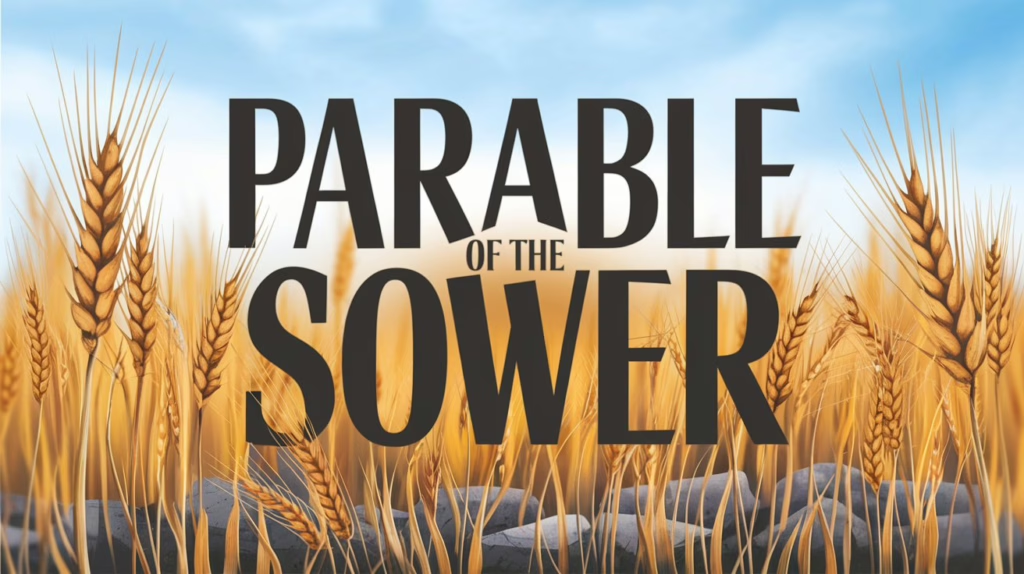Jesus introduces the parable of the ten virgins in Matthew 25:1–13, saying, “Then the kingdom of heaven shall be likened to ten virgins who took their lamps and went out to meet the bridegroom.” These virgins symbolize believers awaiting Christ's return, just as the Church awaits her Bridegroom. This imagery echoes Revelation 19:7–9, where we see the marriage supper of the Lamb and the bride (the Church) clothed in fine linen. The lamps in their hands signify their outward profession of faith, visible to the world as they prepare to meet the bridegroom. However, the group of virgins is...
Fishers of Men: Our Call to Evangelism
When Jesus called His first disciples, He used an analogy that transformed their understanding of their lives and purpose. These men were fishermen by trade, laboring to gather fish from the waters of Galilee. But Jesus redefined their mission, saying, “Follow Me, and I will make you fishers of men” (Matthew 4:19). This call was not just for them but for all believers, as we are commissioned to labor in gathering people into God’s kingdom. In this study, we will explore the concept of being “fishers of men” as Jesus presented it. We’ll examine what it means to bring people into the...
Jesus the Good Shepherd: Symbolism of Shepherding Throughout the Bible
The image of the shepherd is one of the most enduring and profound metaphors in Scripture. Shepherding is used to describe God's relationship with His people, the ministry of Jesus Christ, and the responsibilities of spiritual leaders. From the Old Testament patriarchs to Jesus’ declaration as the “Good Shepherd,” this theme reveals God’s care, guidance, and protection over His flock. This study will explore the role of shepherds in Scripture, their connection to Jesus as the Good Shepherd, and the rich symbolism of shepherding in the life of believers. Old Testament Shepherds:...
The Parable of the Weeds (Tares): Understanding False Believers and False Teachers
The Parable of the Weeds, also known as the Parable of the Tares, is one of Jesus’ teachings about the kingdom of heaven found in Matthew 13:24-30. It provides a profound insight into the presence of both true and false believers within the church and offers us guidance on how to respond. This parable also helps us distinguish between false believers (tares) and false teachers, who play different roles within the body of Christ. The Parable Explained: Wheat and Tares Together In this parable, Jesus describes a man who sows good seed (wheat) in his field. However, while everyone was...
The Parable of the Sower: The Condition of the Heart and the Power of the Word
The Parable of the Sower is one of the most well-known teachings of Jesus and provides a profound insight into the kingdom of heaven, the human heart, and the response to the gospel. This parable, found in Matthew 13:1-23, Mark 4:1-20, and Luke 8:4-15, is unique because Jesus not only tells the parable but also gives us its interpretation, revealing the spiritual truths hidden within the story. Why Did Jesus Teach in Parables? Before diving into the parable itself, it’s important to understand why Jesus often used parables in His teachings. Parables are simple stories that convey deeper...
The Magi and Their Journey: Seeking the True King of Kings
In the Gospel of Matthew, we are introduced to the Magi, mysterious wise men from the East who embarked on a journey to find the newborn King of the Jews. This story is rich with prophecy, symbolism, and divine orchestration. Let’s dive deep into Scripture to uncover who the Magi were, the significance of the gifts they brought, and how their journey was guided by God’s Word. Who Were the Magi? The term “Magi” comes from the Greek word magoi, which refers to a group of wise men, astrologers, or scholars. These men were experts in astronomy, dream interpretation, and ancient texts. The...
The Preeminence of Jesus Christ: The Central Figure of All Scripture
The Bible is not a collection of random stories or moral teachings; it is one unified narrative that points to Jesus Christ. From Genesis to Revelation, Jesus is the central figure, the promised Messiah, the Savior of the world, and the Lord of all creation. He is preeminent—above all things, before all things, and the One through whom all things exist. In John 5:39, Jesus rebuked the Pharisees, saying: “You search the Scriptures, for in them you think you have eternal life; and these are they which testify of Me.” The Pharisees knew the Scriptures well, but they missed the very One to...
The Church as the Salt of the Earth: A Biblical post
When Jesus said, “You are the salt of the earth; but if the salt loses its flavor, how shall it be seasoned? It is then good for nothing but to be thrown out and trampled underfoot by men” (Matthew 5:13, NKJV), He used an analogy that resonated deeply with His first-century audience. Salt was not only a vital part of daily life but held significant symbolic meaning throughout Scripture. Understanding this metaphor is essential for grasping the Church’s role in the world and the seriousness of Christ’s warning about losing its “flavor.” The Uses of Salt in Biblical Times In ancient times,...











